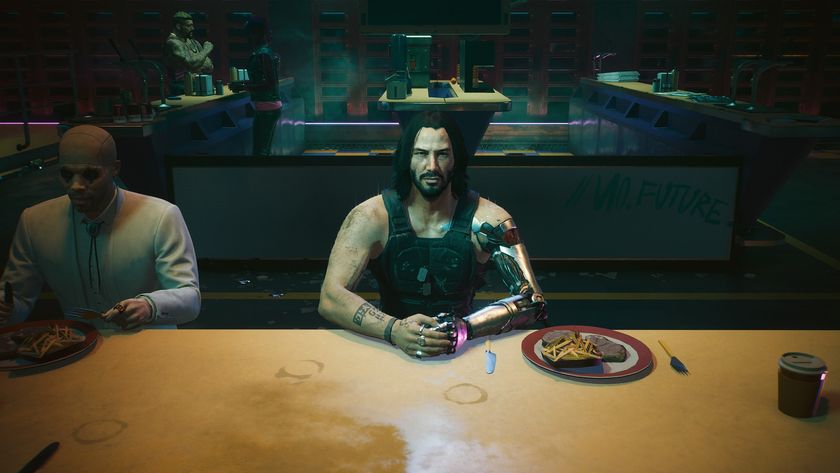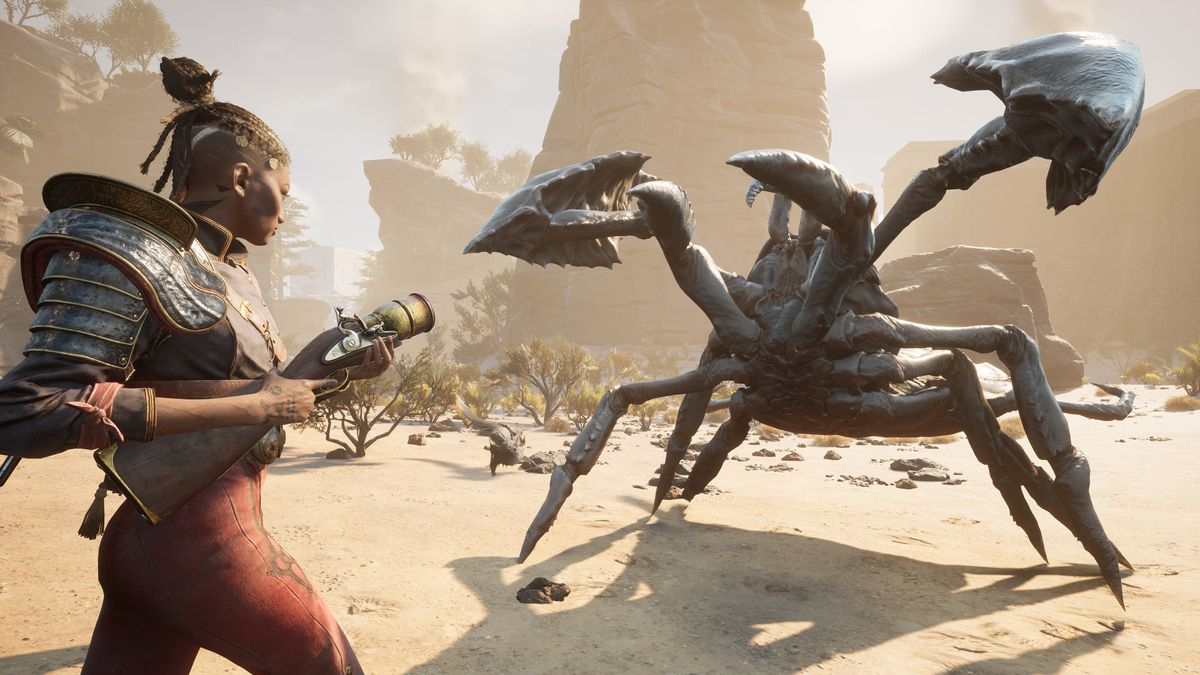
"A lot of what we really enjoyed doing is taking these polar opposite things and smashing them together." When I speak to creative director Simon Dasan and his team just ahead of Summer Game Fest, Flintlock: The Siege of Dawn is just a month away, and with the spectre of Shadow of the Erdtree hanging over the entire event, it's clear that developer A44 is keen to establish a space for it in an increasingly busy Soulslike market.
That design philosophy is most keenly felt in A44's attempt to establish the 'Souls-lite' as an entity separate from the Soulslike. For Dasan, this idea "is the way that we bridge the two genres – an action RPG and a standard Soulslike." Having made 2018's critically well-received Ashen, which was "very much a Soulslike," Dasan says explains the studio "had this idea of making this a bit more accessible to newer players."
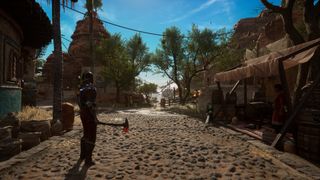
Doing that meant keeping ideas borrowed directly from FromSoftware, most notably the "rhythmic combat" of Dark Souls, but also finding ways to bring in ideas from outside the genre. Protagonist Nor, for example, is faster than your typical Tarnished or Chosen Undead, far more mobile, able to climb and explore much more freely than any Souls character; and powerful ultimate abilities – called 'Witherings' – "add a cinematic experience" familiar to action-RPG fans.
The lands after
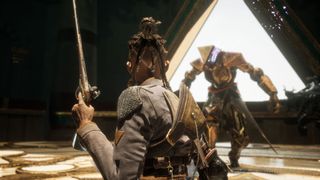
Even as A44 attempts to establish the 'soulslite' space by crashing two other genres together, its desire to take 'polar opposites' extends far beyond gameplay. Even the most basic idea behind Flintlock - an 18th century army going up against almost Lovecraftian divine forces - continues that philosophy. The team spoke to a handful of authors writing novels in the genre of the aptly-named 'Flintlock Fantasy,' but Dasan says that "the world we created is wholly unto ourselves. We really loved this idea of the collision of two worlds that really shouldn't be coming together."
That idea extends through the entire world. Associate art director Dale Pugh notes that there's a strong Mesopotamian influence in Flintlock's architecture and world-building, but that sits up against flora and fauna inspired by the team's native New Zealand. Key to Nor's journey are coffee shops, which feel almost anachronistic within this divine war, but were chosen "to create something quite unique in contrast with the rest of the game."
New Zealand rainforest nestles up against desert, Old Gods are fought with pistols and muskets. It all falls into a core philosophy behind the entire game, which Dasan says is about "creating these dramatic scenes that nobody thinks could work together. We've taken inspiration from all over the place." Some gods draw from that Mesopotamian influence, but others are "more Middle-Eastern," while some simply come from a more horror-driven space: "We've cast our net quite wide."
Soul of the genre
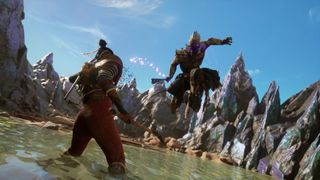
No matter how wide that net is cast, however, the biggest fish in this particular pond remains the Soulslike itself. As I speak to Dasan, Shadow of the Erdtree is only days away, but Flintlock's director says that, being based in New Zealand, it's pretty easy for the team to "just do our own thing." Nevertheless, a stream of soulslikes that started in earnest in 2023 and shows no sign of slowing down through 2024 means that Flintlock faces plenty of competition. Dasan, however, is hoping that being 'lite' should help Flintlock find its own audience.
Sign up to the 12DOVE Newsletter
Weekly digests, tales from the communities you love, and more
"We want to make games for as many people as possible," he says, while also acknowledging that "it was really important to make sure that we didn't alienate the people who really do like a tougher experience." Flintlock's difficulty modes should help with that, including a hard mode that is "really quite challenging," but which will be open to players from the very start of the game. By contrast, normal mode is there to act as a "bridge" from action RPGs. Here, the difficulty "creeps up on you, it doesn't nail you right from the start.
"There are so many people who might get turned off from the hard-as-nails difficulty," he tells me. "And we wanted to allow them to come and learn what's so great about this genre. Soulslike is so much more than a combat mechanic. It's the world and the narrative delivery. I think it's really stepping into the mainstream now, and it's influenced so many games. Even if it's subconscious." For Dasan, it's that widespread influence, attached to a clear respect for the soulslike, that has driven this project since the start: "That's how Flintlock got started - 'how can we put our own mark on what it is that we do?' I don't think we want to be stuck to any particular genre. There's so much space to move, iterate, grow, and innovate in this kind of arena. To me, I feel like we've found our own place, become our own thing. The blend has created something unto itself. But at the same time, that merging of the two is done in a way that feels uniquely Flintlock."
Find out if the gamble paid off with our Flintlock: The Siege of Dawn review.

I'm GamesRadar's news editor, working with the team to deliver breaking news from across the industry. I started my journalistic career while getting my degree in English Literature at the University of Warwick, where I also worked as Games Editor on the student newspaper, The Boar. Since then, I've run the news sections at PCGamesN and Kotaku UK, and also regularly contributed to PC Gamer. As you might be able to tell, PC is my platform of choice, so you can regularly find me playing League of Legends or Steam's latest indie hit.
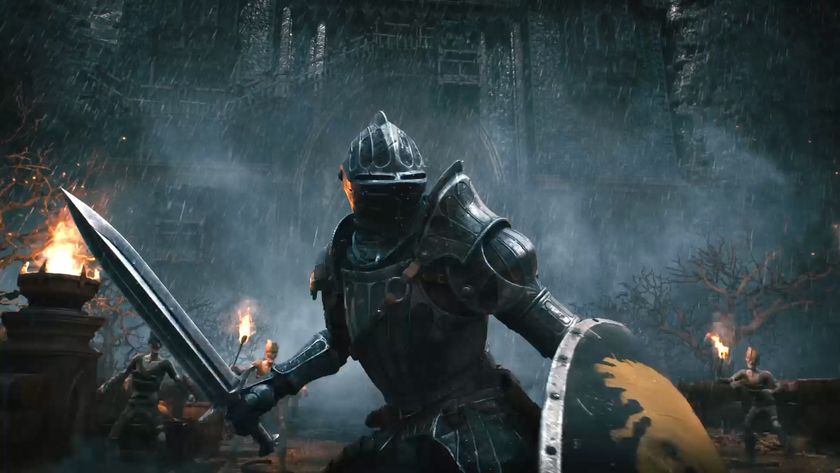
FromSoftware didn't work with Sony on Dark Souls because of how the company failed Demon's Souls, says ex-PlayStation boss: "We definitely dropped the ball"
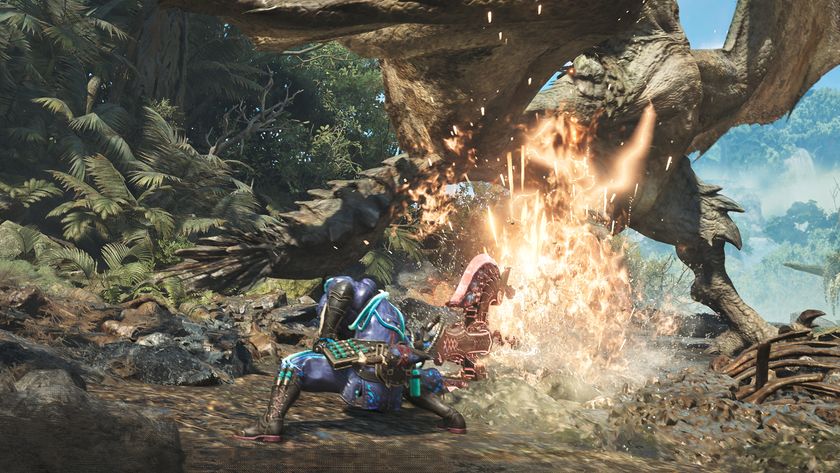
"There shouldn't just be one weapon to slay them all": Monster Hunter Wilds' director will put up with my hammer bro shenanigans, but wants players to have options
Most Popular







